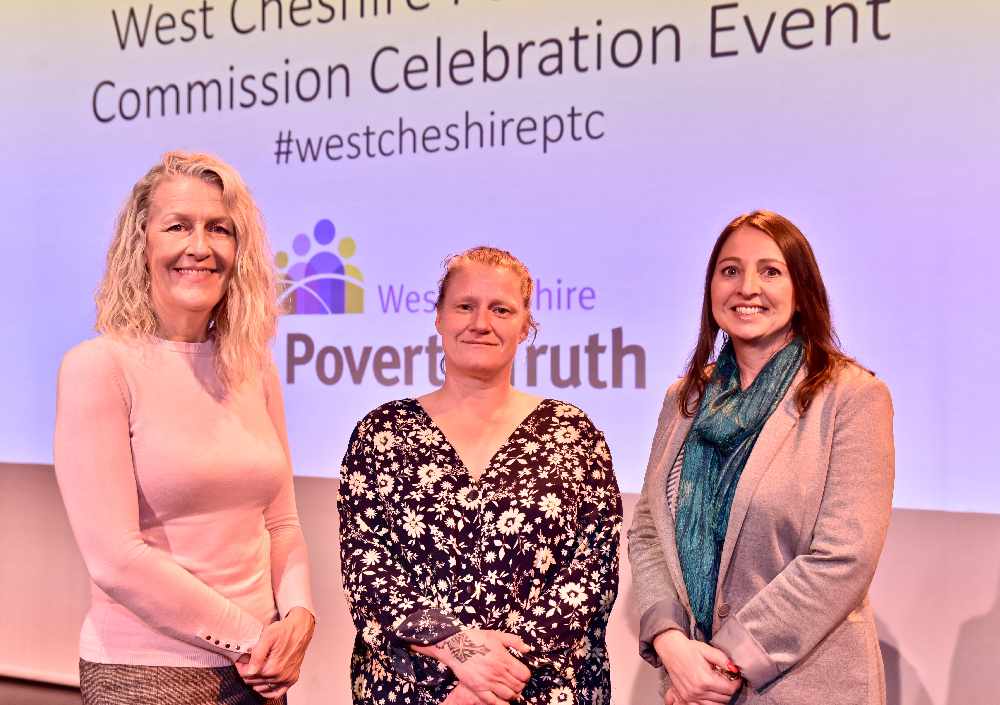
A leading academic at the University of Chester has published an evaluation of creative and collaborative processes to tackle poverty in Cheshire which could help to tackle the issue in a new way during and after the COVID-19 pandemic.
The West Cheshire Poverty Truth Commission (PTC), established by Cheshire West and Chester Council, brings together businesses, leaders of public services, and people with lived experience of poverty, to tackle the causes of poverty through collaboratively agreed action plans at local level.
Professor Tony Wall, Founder and Head of the International Centre for Thriving at the University of Chester, led the evaluation using imaginative approaches to help participants decide what and how to measure the impacts of their transformational action plans.
The second PTC has focused on three key themes: food poverty; housing and homelessness; and health (including mental health). The 18 month commission has worked with young people to strengthen their voice. They have managed to influence changes to school meal provision and shared their experiences on the support they receive for mental health and wellbeing. The PTC has also worked with food banks, housing providers and health services, raising awareness of issues and solutions at a local and national level. One of the most radical changes involved a single housing provider changing their eviction processes to focus on wellbeing rather than process.
Overall, the report estimated that for every £1 spent on West Cheshire Poverty Truth Commission, there was a return of £9.17 (a social value of over £1.6m). This return more than doubles to £18.51 once the changes made to the single social housing are rolled out to other locations.
The report can be found here.
Professor Wall said: “Although Cheshire is often seen as a prosperous county, national statistics tell us that 34 neighbourhoods of West Cheshire and Chester rank in the 20 per cent most deprived areas in England –helping people out of poverty benefits everyone including those not yet in poverty.”
The evidence captured in the evaluation will underpin council policy moving into the next planning period. This includes integrating anti-poverty strategy into council action plans, rather than hosting another PTC.
Louise Gittins, Leader of the Cheshire West and Chester Council, said: “The legacy of this work is the golden thread for our new plans as a council. The work carried out by the PTC has made positive change in the borough and on a national scale.
“We have worked with residents, community inspirers and organisations to improve processes, promote two-way conversations between service and user and integrate procedures to benefit the user. The learning that we have gained from both commissions will be embedded into council services. The community inspirers will continue to be involved and play an active role in developing a collective anti-poverty strategy for the borough.
“Now, more than ever, this is vitally important. The pandemic is putting a huge strain on people emotionally, mentally and financially and we need to support people, wherever we can.”
Professor Kurt Allman, the Executive Dean of the Faculty of Business and Management, where the Centre is located, said: “This research is extremely important locally, but also nationally. Increasingly we are seeing a growing socio-economic divide and this isn’t just contained to the major conurbations and cities, but evident in what we consider as more leafy quarters. Tackling this requires new approaches and interdisciplinary thinking.”
The University’s International Centre for Thriving is a global scale collaboration between business, arts, health, and education to deliver sustainable transformation. It advises, consults, and co-creates organisational development and change programmes to build resilience, wellbeing, and to deliver sustainable change.
West Cheshire Poverty Truth Commission (WCPTC) was only the fourth in the country to be established and the first to be led and administrated by a Local Authority. Cheshire West and Chester Council established the West Cheshire Poverty Truth Commission in September 2016 to address gaps in services and inequalities across the borough. The WCPTC puts people with lived experience of poverty, known as a Community Inspirer, at the heart of the decision-making process. The process brings them together with an equal number of civic and business leaders from the borough and they work together, developing a range of solutions and recommendations to help improve the lives of those affected by poverty.
Each commission has a lifespan of 18 months. The second WCPTC launched in January 2019 and agreed on three priorities:
• food poverty: working with the Foodbank and local schools
• health, including mental health and the impact poverty has on our mental wellbeing.
• housing and homelessness
The second WCPTC ended in March 2020 when all of its hard work and successes were shared at a closing event. The work on poverty will continue, being highlighted throughout the Council Plan. Prior learning will be embedded into council services and community inspirers will continue to play an active role.
Pictured - Cllr Louise Gittens, Tracy - Community Inspirer and Sharon Wallace, Programme Director at ForHousing, at the PTC closing event in early March 2020.

 Bike thefts in North Wales
Bike thefts in North Wales
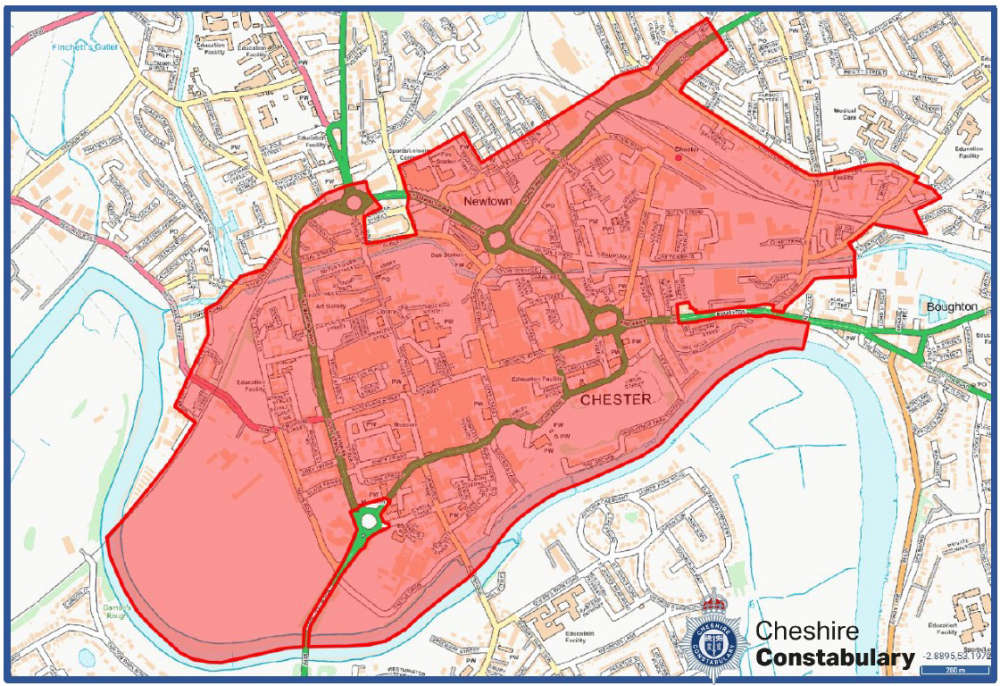 Increased police presence in Chester to ensure safety of racegoers
Increased police presence in Chester to ensure safety of racegoers
 Officers in Chester launch campaign to keep people safe in the city this summer
Officers in Chester launch campaign to keep people safe in the city this summer
 Ellesmere Port Market transformation work starts
Ellesmere Port Market transformation work starts
 Man jailed for killing two women in Dunkirk collision
Man jailed for killing two women in Dunkirk collision
 Man remanded in custody following murder in Ellesmere Port
Man remanded in custody following murder in Ellesmere Port
 Jazz fundraiser for Ukraine is a family affair
Jazz fundraiser for Ukraine is a family affair
 International Love Your Local Market campaign launched at Chester Market
International Love Your Local Market campaign launched at Chester Market
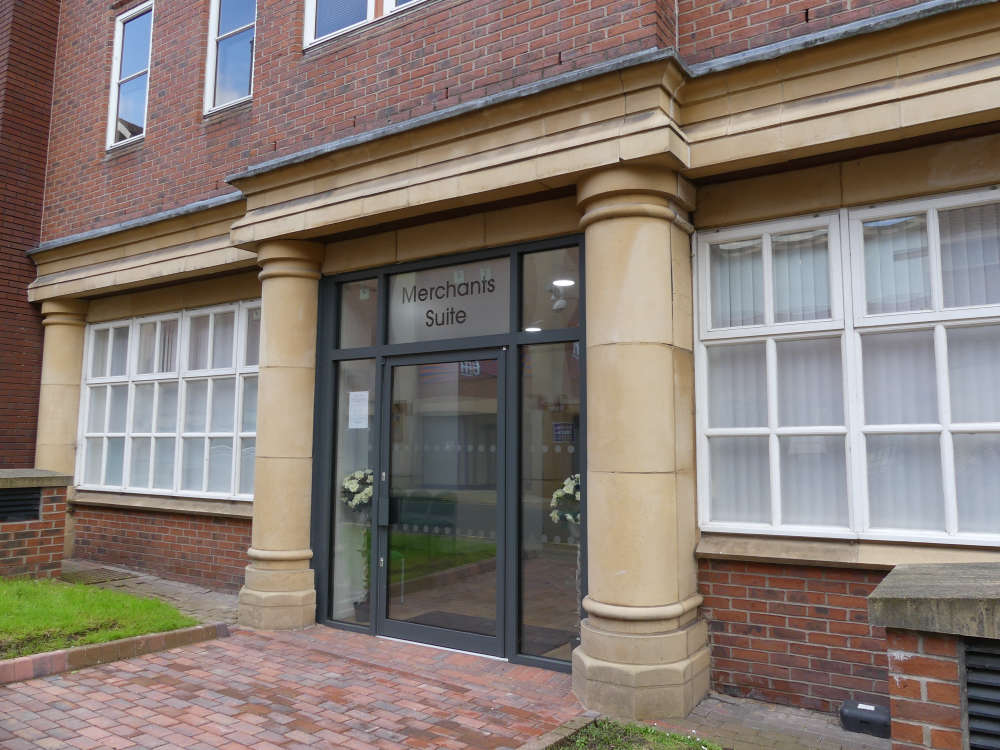 First wedding in new ceremony room at Merchants House in Chester
First wedding in new ceremony room at Merchants House in Chester
 Update from Chester FC's General Manager Albert Davies
Update from Chester FC's General Manager Albert Davies
 A CHANCE TO JOIN ONE OF CHESTER'S TOP CHOIRS AHEAD OF BUSY SEASON OF CONCERTS
A CHANCE TO JOIN ONE OF CHESTER'S TOP CHOIRS AHEAD OF BUSY SEASON OF CONCERTS
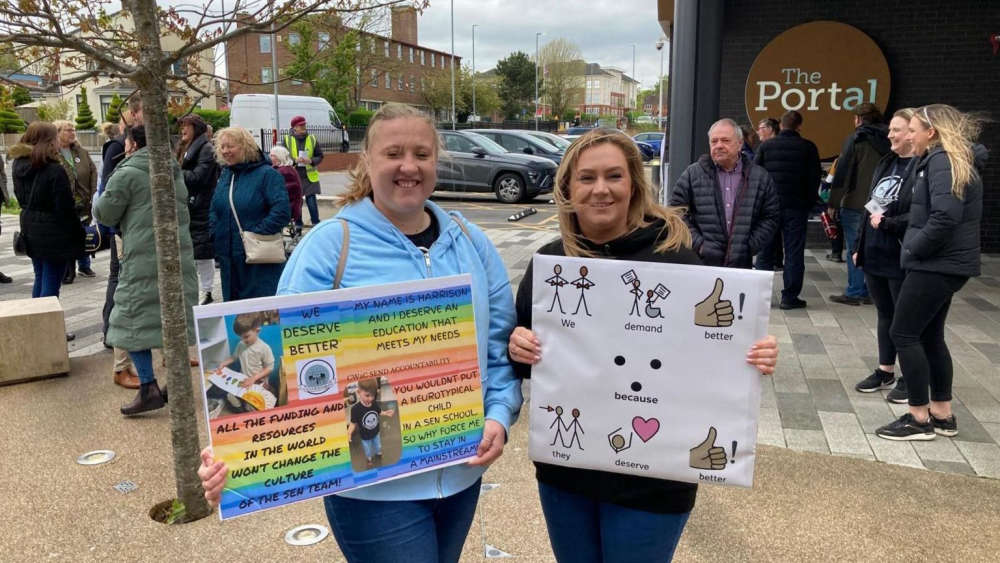 CWaC SEND Accountability
CWaC SEND Accountability
 Sensory Support Charity DSN Announces Exciting Rebrand
Sensory Support Charity DSN Announces Exciting Rebrand
 Dan Price elected as Cheshire’s Police and Crime Commissioner
Dan Price elected as Cheshire’s Police and Crime Commissioner
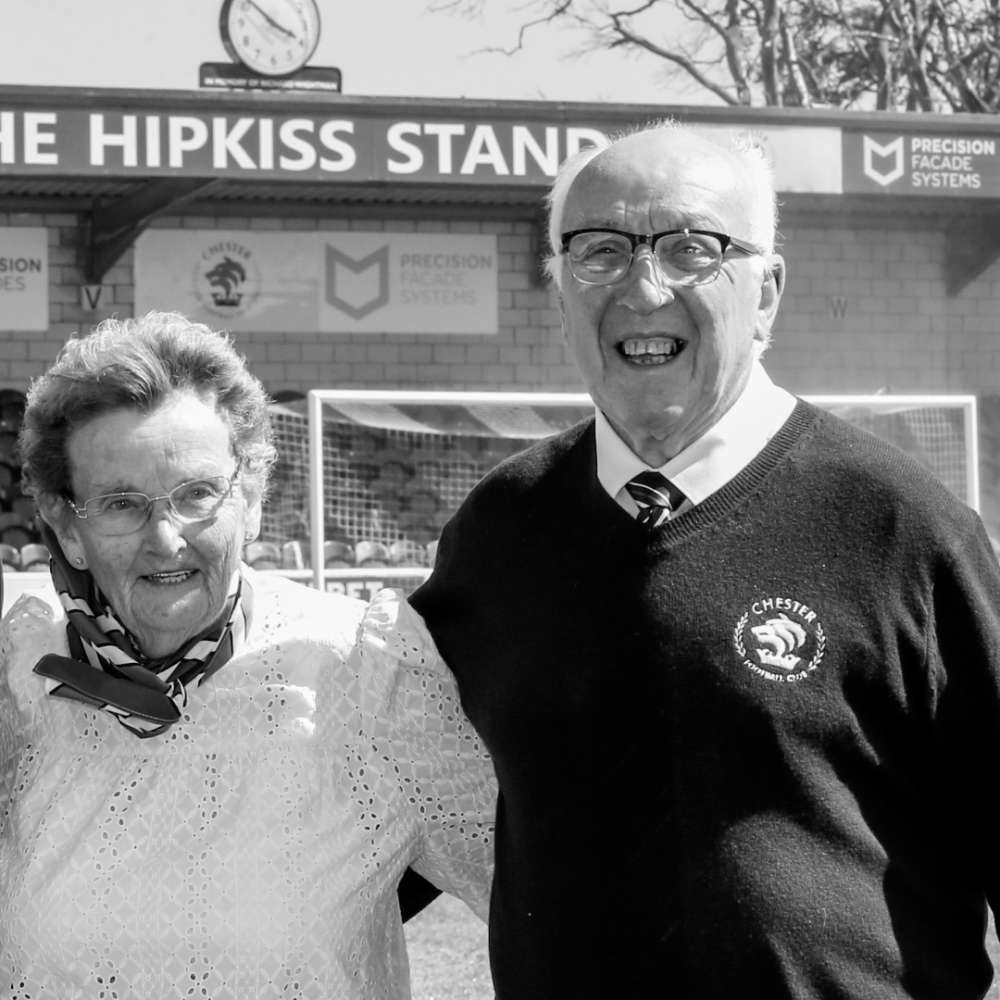 RIP BARRIE HIPKISS
RIP BARRIE HIPKISS
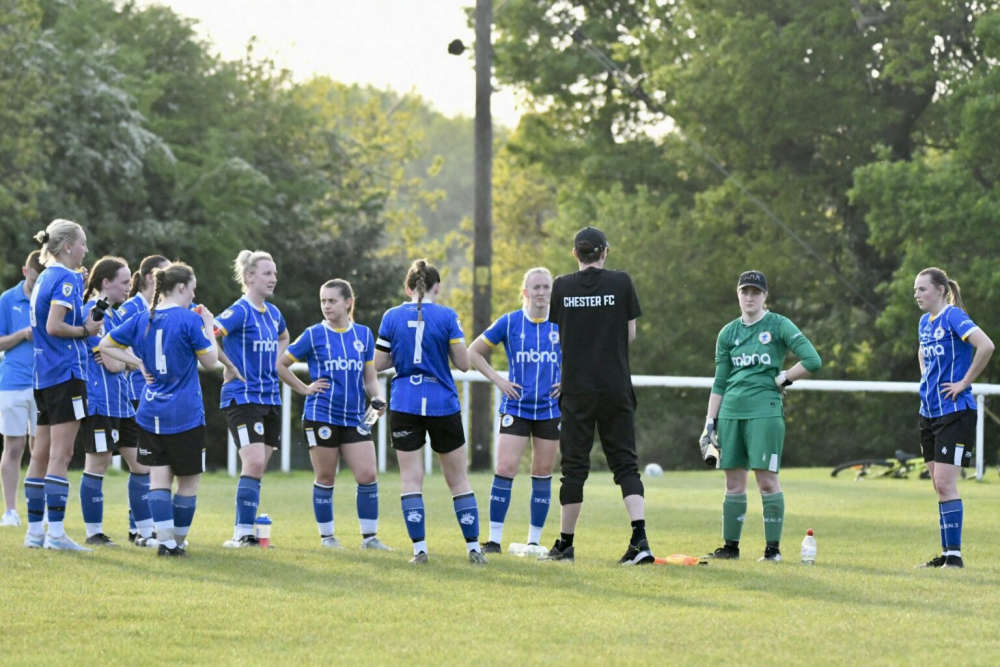 MATCH REPORT: NORTHWICH VIXENS 2 - 3 CHESTER WOMEN'S TEAM
MATCH REPORT: NORTHWICH VIXENS 2 - 3 CHESTER WOMEN'S TEAM
 Encrodealer jailed for supplying thousands of pounds worth of class A & B drugs in Chester & Ellesmere Port
Encrodealer jailed for supplying thousands of pounds worth of class A & B drugs in Chester & Ellesmere Port
 Police appeal for information following burglary in Chester
Police appeal for information following burglary in Chester
 Man who was on the run for 24 years jailed for killing two cyclists in Clotton
Man who was on the run for 24 years jailed for killing two cyclists in Clotton